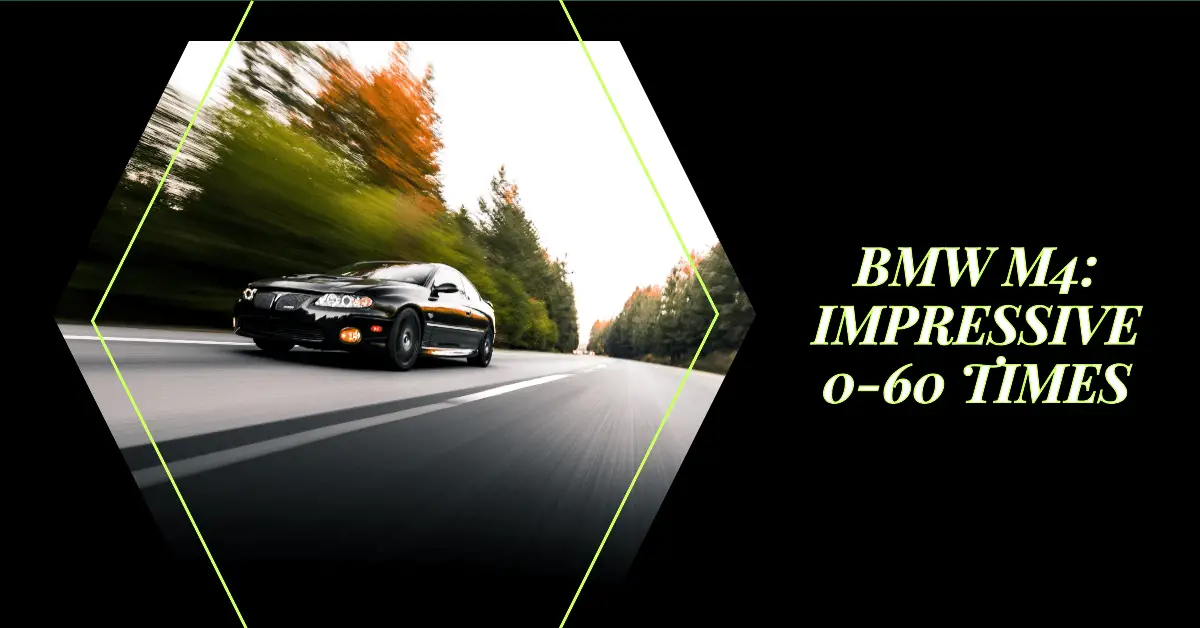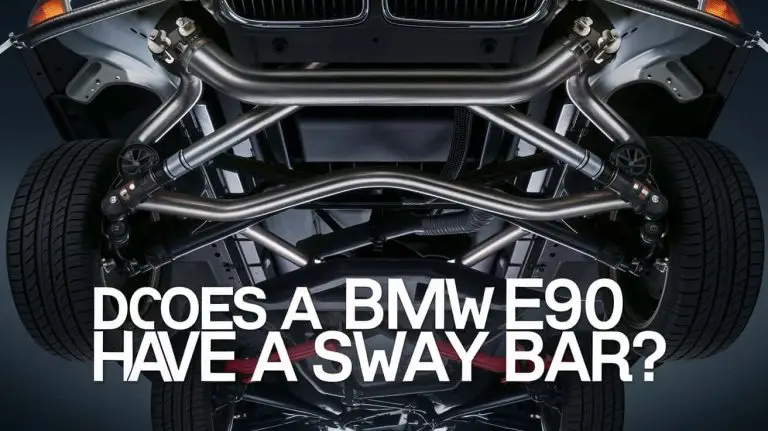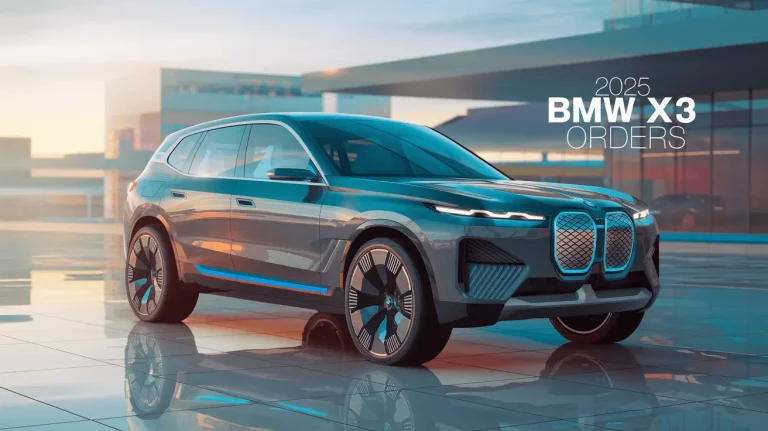BMW M4 0-60 Times: Just How Quickly Does This Iconic Sports Car Accelerate?
The BMW M4 is one of the most coveted high-performance coupes on the market. With its aggressively styled exterior and track-ready chassis, many driving enthusiasts are curious – just how quickly can the M4 accelerate from 0-60 mph?
In this in-depth guide, we’ll break down the BMW M4’s 0-60 times for all model years and trim levels. We’ll also overview the powertrain specs, compare the M4 against key rivals, and ultimately see how this iconic sports car stacks up on acceleration.
An Overview of BMW M4 0-60 Times
The BMW M4 comes equipped with a turbocharged 3.0L inline 6-cylinder engine (S55B30T0) that churns out some seriously quick acceleration times. Here’s a look at 0-60 mph times for the M4 across different model years:
- 2014-2015 BMW M4: 3.9 seconds (manual), 3.8 seconds (DCT dual-clutch transmission)
- 2016-2018 BMW M4: 3.8 seconds (manual), 3.7 seconds (DCT)
- 2019 BMW M4: 3.7 seconds (manual), 3.6 seconds (DCT)
- 2020+ BMW M4: 3.3 seconds (manual), 3.1 seconds (DCT)
Several key factors account for the improvement in 0-60 times over the years:
- Power increases – Horsepower jumped from 425 hp in early models to 444 hp in 2019+ Competition Package models.
- More torque – Torque is up from 406 lb-ft to 442 lb-ft in the latest M4 iterations.
- Transmission advancements – The DCT dual-clutch gearbox delivers lightning-quick shifts.
- Weight reduction – Shedding pounds streamlines acceleration.
What Makes the BMW M4 So Quick? Powertrain and Performance Tech
What gives the M4 such blistering acceleration capabilities straight from the factory? Let’s look under the hood and examine the performance technology powering this sports coupe:
Twin-Turbo 3.0L I6 Engine
The BMW M4 features a 3.0-liter turbocharged inline 6-cylinder engine designated S55B30T0. Key specs include:
- Twin-scroll turbochargers – Two turbochargers spool up quickly to eliminate lag.
- Closed-deck block – Improves strength for handling immense power.
- Valvetronic – Variable valve lift optimizes air intake.
- Double-VANOS – Precisely adjusts valve timing on both intake and exhaust.
- Water-to-air intercooling – Cools compressed air from the turbos.
- Gasoline direct injection – Precisely sprays fuel for efficient combustion.
This powertrain generates huge horsepower and torque levels while maintaining the silky-smooth character of an inline-6. Turbo lag is practically eliminated thanks to dual turbochargers.
Transmission Options
The BMW M4 comes standard with a 6-speed manual gearbox that includes automatic rev-matching for perfectly timed downshifts.
However, most models are equipped with the 7-speed M Double Clutch Transmission (M-DCT) dual-clutch automatic. This transmission shifts gears in a lightning-fast 80-100 milliseconds when in its most aggressive setting. No torque converter or power interruption occurs between shifts.
The M-DCT is a key enabler of the M4’s rapid acceleration. Even novice drivers can achieve quick 0-60 sprints by simply mashing the gas pedal thanks to the speed of the dual-clutch auto.
Rear-Wheel Drive
Power is sent exclusively to the rear wheels in pure sports car fashion. The M4 lacks all-wheel drive, which adds weight and dulls connection to the road. Its optimal front/rear weight balance also improves acceleration traction compared to front-heavy rivals.
M Differential
Models equipped with the M-DCT transmission also get an electronically-controlled Active M Differential. This rear differential can lock up 100% to improve grip and traction when accelerating. It also enhances stability by evenly distributing torque between the rear wheels.
Lightweight Design
BMW utilized lightweight materials and construction methods to drop weight wherever possible. Aluminum is employed for the hood, front fenders, roof, doors, and suspension components. The frame consists of high-strength steel. Less mass ultimately allows the engine to propel the car quicker.
This combination of a high-output turbo engine, optimized transmission, rear-drive layout, electronically controlled differential, and low weight all contribute to the M4’s reputation for incredible acceleration capabilities right off the production line.
The Competition: How Does the BMW M4 Stack Up to Rivals?
The BMW M4 is far from the only sports coupe on the market striving for rapid acceleration. Key competitors from Audi and Mercedes-AMG also boast seriously quick 0-60 mph times. Here’s how the M4 compares against its closest rivals:
BMW M4 vs. Audi RS5
The top-trim Audi RS5 features a 2.9L twin-turbo V6 pumping out 444 hp and 443 lb-ft of torque. Quattro all-wheel drive is standard. In Sport Plus mode with launch control, Audi quotes a 3.9 second 0-60 time for the RS5.
- BMW M4 0-60: 3.7 seconds (DCT)
- Audi RS5 0-60: 3.9 seconds
The M4 holds a slight edge over the RS5 in 0-60 times. However, Audi’s Quattro AWD system provides an advantage in poor weather traction. The BMW is more involving for the driver with its RWD layout.
BMW M4 vs. Mercedes-AMG C63 S
With a hand-built 4.0L twin-turbo V8 making 503 hp and 516 lb-ft of torque, the Mercedes-AMG C63 S Coupe is a prime competitor to the M4. AMG quotes a 3.8 second 0-60 time.
- BMW M4 0-60: 3.6 seconds (DCT)
- Mercedes-AMG C63 S 0-60: 3.8 seconds
While neck-and-neck, the extra torque from its larger displacement V8 allows the AMG C63 S to just barely come out ahead in 0-60 runs. The BMW provides a more tactile driving experience and handles better though.
So while models like the Audi RS5 and Mercedes-AMG C63 S can match the M4 on paper, BMW’s sports coupe remains the enthusiasts’ choice for its superior driving dynamics. The M4 strikes a brilliant balance between acceleration, handling precision, and driver engagement.
Breaking Down BMW M4 0-60 Times by Year
Now let’s take a granular model year-by-model year look at BMW M4 acceleration times. We’ll also call out key performance enhancements that resulted in quicker 0-60 mph sprints:
2014-2015 BMW M4
The first BMW M4 iterations that debuted for 2014 came out of the gate quick off the line. 0-60 times were:
- 3.9 seconds with 6-speed manual – The manual gearbox required perfect shifts but enabled skilled drivers to extract quick times.
- 3.8 seconds with 7-speed M-DCT – The new dual-clutch auto delivered lightning-fast shifts.
Powering these early M4 models was the S55 3.0L twin-turbo inline-6 rated at 425 hp and 406 lb-ft of torque. The engine utilized Valvetronic variable valve lift and Double-VANOS timing technology for optimal respiration. A roof made from carbon fiber reinforced plastic (CFRP) helped lower the center of gravity to aid acceleration.
2016-2018 BMW M4
BMW made some minor enhancements to shave a tenth of a second off the 0-60 mph time:
- 3.8 seconds with 6-speed manual – Revised gear ratios enabled quicker acceleration.
- 3.7 seconds with 7-speed M-DCT – Faster shifting software unleashed full performance potential.
While peak output remained at 425 hp and 406 lb-ft, the twin-turbo I6 received upgraded pistons and tuning tweaks to refine responsiveness. These changes, along with revised transmission gearing, contributed to the slight improvement in 0-60 runs.
2019 BMW M4
More significant enhancement for 2019 resulted in another 0.1 second reduction in 0-60 times:
- 3.7 seconds with 6-speed manual – Shorter gear ratios in 3rd and 4th gears.
- 3.6 seconds with 8-speed M-DCT – New 8-speed brought quicker acceleration.
BMW remapped the turbocharged I6 to increase peak output to 444 hp @ 7000 rpm while torque grew modestly to 442 lb-ft from 406 lb-ft. The new 8-speed M-DCT dual-clutch transmission swapped the previous 7-speed DCT for an 8-speed unit. This latest generation transmission shifted even faster.
2020+ BMW M4
The latest BMW M4 models have benefitted from running changes that together have made a substantial impact on 0-60 mph acceleration:
- 3.3 seconds with 6-speed manual
- 3.1 seconds with 8-speed M-DCT
Although rated at the same 444 hp and 442 lb-ft as 2019, real-world testing revealed even quicker acceleration. BMW continued honing the S55 engine with reduced internal friction and improved cooling. Weight reduction from lighter crankshaft and aluminum transmission housing also enabled faster sprints.
DCT vs. Manual: Which BMW M4 Shifts Faster?
BMW offers the choice between a traditional 6-speed manual gearbox or the advanced M-DCT dual-clutch automatic. But which transmission allows the M4 to accelerate from 0-60 mph the quickest?
The dual-clutch M-DCT consistently delivers faster 0-60 times than the manual alternative. For example, a 2020 M4 with the 8-speed automatic sprints to 60 mph in just 3.1 seconds. The manual takes 3.3 seconds – still a quick run but 0.2 seconds slower.
There are a few reasons why the dual-clutch shifts faster:
- Uninterrupted power – No torque converter or clutch slip means seamless acceleration between gears.
- Faster shifts – M-DCT can swap ratios in just 80-100 milliseconds.
- Perfect rev-matching – The DCT automatically matches revs when downshifting flawlessly.
- Consistent launches – Optimized launch control aids initial jump off the line.
While purists may still prefer the enjoyment and control of a manual, the dual-clutch M-DCT undeniably delivers quicker acceleration times. Even inexperienced drivers can achieve speedy 0-60 sprints by simply flooring the gas pedal and letting the automatic handle quick shifting.
How Much Faster is the BMW M4 Competition Package?
BMW offers an optional Competition Package for hardcore enthusiasts seeking even greater performance. Models equipped with the Competition Package benefit from the following upgrades:
- More power – Tuned S55 engine bumped up to 453 hp (+9 hp).
- Sportier suspension – Revised adaptive M suspension lowers ride height and sharpens handling. Upgraded bushings and anti-roll bars increase cornering grip.
- Improved brakes – Larger six-piston front brake calipers and 15” discs enhance stopping power.
- Sticky tires – Wider rear tires (285 vs 275 mm) combined with reduced sidewall improve traction.
- Sport exhaust – Free-flowing M Sport exhaust system generates a more muscular sound.
These comprehensive upgrades shrink the 0-60 time by around 0.2-0.3 seconds in manual transmission models. DCT-equipped Competition Package cars can accelerate from 0-60 in a blistering 3.0 seconds flat.
While carries a hefty price premium, the Competition Package transforms an already quick BMW M4 into a legitimate super sports car.
How Much Does BMW M4 Weigh? Curb Weight Over the Years
Vehicle weight has a major influence on acceleration, braking, and handling. Lower mass enables a given power output to motivate the car quicker. Here’s how BMW M4 curb weights have trended over time:
- 2014-2015: 3,530 lbs
- 2016-2018: 3,555 lbs
- 2019: 3,600 lbs
- 2020+: 3,640 lbs
Unfortunately, increased luxury features and more stringent safety requirements over the years have slowly added pounds to the M4. Recent Competition Package models partly offset this with additional lightweight components. Still, today’s M4 weighs around 110 lbs more than the svelte original version.
For buyers concerned about keeping weight down, opting for the no-cost carbon fiber roof on new M4 models sheds 12 lbs from the highest, most rearward section of the car. This drops center of gravity height for better handling and acceleration. Other lightweight options like carbon ceramic brakes also help offsets pounds.
Best Mods to Enhance BMW M4 0-60 Times
While impressively quick out of the box, owners can pursue a range of modifications to reduce BMW M4 0-60 times even further. Here are some of the most effective mods and aftermarket upgrades:
Software Tuning
Getting an ECU tune is the simplest way to extract more power and acceleration from the M4. Custom tunes from companies like Dinan, ESS Tuning, and BootMod3 safely reflash the engine computer to achieve outputs up to 550+ hp and 500+ lb-ft torque depending on mods.
Downpipes
Catless or high-flow downpipes reduce restrictive backpressure on turbocharged engines. This allows the turbos to spool faster and the engine to breathe easier, resulting in quicker sprints. Expect +30 to 50 hp.
Intake + Intercooler
An aftermarket cold air intake feeds denser, cooler air to the engine. Upgrading the intercooler further cools the compressed air charge for more power. Reduced intake air temps fight heatsoak as well.
Exhaust
A cat-back exhaust system with larger piping and free-flowing mufflers reduces backpressure for improved turbo response and top-end pull. The M4 will sound a lot meaner too!
Weight Reduction
Every 10 lbs removed equals approximately 0.1 second quicker in the BMW M4 0-60 time. Shedding weight through carbon fiber parts, lightweight wheels, and deleted sound deadening pays big acceleration dividends.
Combined, these common modifications can bring the M4’s 0-60 time down well into the 2 second range with the right tires and skillful launch. Just be aware such mods require upgraded engine internals to reliably handle the extra power.
How to Launch a BMW M4 for the Quickest 0-60 Times
Launching an M4 perfectly off the line is critical for unlocking the quickest possible acceleration runs. Here are some tips:
- Activate launch control – Engage the BMW’s launch control system by holding the brake, flooring the throttle, and releasing the brake when ready. The engine will rev to a predetermined RPM for optimal launches.
- Use second gear – Skip 1st gear entirely to reduce wheel spin. The optimal RPM range is 3500 to 4000.
- Modulate wheelslip – Manage tire slippage with smooth throttle inputs to transfer weight rearward while accelerating traction.
- Keep steering straight – Any unnecessary steering input will scrub speed.
- Shift quickly and cleanly – Run through the gears decisively. Keep shifts below 100 milliseconds on the DCT.
- Shift at redline – Wring every last RPM out of each gear. Short shifting hurts acceleration.
- Keep cool – Start with a cold engine if possible and watch intercooler temps. Heat is the enemy of quick runs.
With practice, skilled drivers can consistently achieve sub 3.5 second 0-60 sprints in a properly equipped BMW M4. Having the right settings, tires, and conditions is crucial.
Top Speed for the BMW M4
While acceleration is impressive, the BMW M4 also boasts seriously high top speeds for a production sports coupe:
- 174 mph electronically limited top speed – Early M4 models were capped at 155 mph before BMW raised the limiter.
- 189+ mph derestricted – Uncorking the top speed limiter allows the M4 to reach 189+ mph.
- 200 mph+ possible – With mods, an uncorked Competition Package car can potentially exceed 200 mph.
At Autobahn speeds, the M4 remains planted and stable thanks to its balanced chassis, low drag coefficient of 0.34 Cd, and use of lightweight materials. The BMW can keep pace with some of the world’s fastest sports cars at the top end.
However, such high speeds also drain the 16.6 gallon fuel tank quickly. Expect single digit mpg consumption at 170+ mph.
Getting the Best 0-60 Times from a BMW M4
While the BMW M4 accelerates quickly no matter what, certain conditions produce the absolute fastest 0-60 runs:
- Use launch control – BMW’s optimized launch control system delivers quickest times. Just brake torque, floor the gas, and release.
- Keep engine and drivetrain cool – Heat is the enemy of fast acceleration. Allow adequate cool down periods between runs. Avoid overheating.
- Temperature around 60°F – Hot weather reduces air density and engine performance. Cooler temps enable quicker times.
- Sticky summer performance tires – Maximize traction off the line with soft, grippy tires warmed to temp.
- Dry conditions – Rain or snow will significantly hamper acceleration traction and times.
- Light fuel load – The heavier the fuel, the more it impedes quick acceleration. Run on fumes.
Remove unnecessary cargo to reduce weight. Every pound slows acceleration.- Use a flat, grippy surface – Launch off concrete or fresh asphalt. Avoid polished or damp surfaces.
- Preload suspension – For manual models, rocking the car back and forth builds compression to aid launches.
- Perform the 3-2 roll-out technique – Starting in 3rd gear with 2nd gear preselected reduces wheel spin off the line.
- Manage wheel slip – Carefully modulate throttle to balance wheel slippage and traction. Too much or too little slip hurts times.
- Shift cleanly – Perfect rev-matched shifts preserve momentum. Leave automatic in fastest mode.
- Shift at redline – Stay in each gear until just before the fuel cutoff to optimize every gear.
Avoiding anything that generates excessive wheel spin, traction loss, or power interruption is key. Patience and taking the time to properly warm up the M4 also pays off with much quicker times.
Common Questions about BMW M4 0-60 Times
Here are answers to some frequently asked questions about the BMW M4’s 0-60 mph acceleration capabilities:
How much faster is the M4 Competition Package 0-60?
The Competition Package typically shaves 0.2-0.3 seconds off the 0-60 time of a regular BMW M4. For example, a standard DCT model hits 60 mph in 3.1 seconds while the Competition car can get there in 2.9 seconds.
Is the BMW M4 faster than a Porsche 911?
The latest Porsche 911 Carrera S with PDK dual clutch transmission achieves 0-60 mph in 3.2 seconds – right on par with a standard BMW M4. However, a Competition Package M4 can outpace the 911 Carrera to 60 mph.
Why is the M-DCT faster than the manual transmission?
The dual-clutch automated transmission shifts significantly quicker than a traditional manual and optimizes launches. Less power interruption during gear changes enables faster 0-60 sprints.
How long can the BMW M4 run at top speed?
The M4 has a top speed of 174 mph limited electronically. It can maintain this maximum velocity for around 10-15 minutes before fuel is depleted. Driving at such extreme speeds is only advisable on a closed course.
What tires help accelerate the M4 fastest?
Sticky summer performance tires in the factory 275/265 front/rear sizes provide maximum grip off the line. Examples include Michelin Pilot Sport 4S, Pirelli P Zero, Continental ExtremeContact Sport, and Goodyear Eagle F1 Supercar.
Does BMW underrate the M4’s true horsepower?
Yes, the factory power figures are considered conservative. Actual wheel horsepower measured by dynos typically reveals the M4’s engine produces 20-30 horsepower more than the rated output.
Conclusion – Just How Quick is the Legendary BMW M4?
With its stout turbocharged inline-6, advanced transmissions, and tenacious rear-drive handling, the BMW M4 has cemented its status as a preeminent sports coupe over the past decade. Consistently sub-4 second 0-60 mph acceleration, achieved with either manual or dual-clutch gearboxes, provides electrifying performance.
While rivals like the Mercedes-AMG C63 S and Audi RS5 post similar specs on paper, the total package of the BMW M4 still evokes the most passion from driving enthusiasts. Surging forward on a twisty back road or rocketing down an empty straightway reveals the depth of the M4’s performance capabilities. This iconic coupe has earned its hallowed spot in BMW M history thanks to sensational acceleration, charismatic engine sound, and sheer driving rewards.







